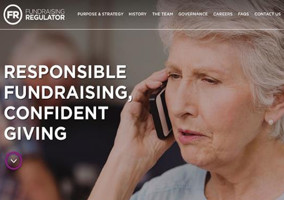The Fundraising Regulator has today announced it has signed a memorandum of understanding with the Higher Education Funding Council for England.
HEFCE is the primary regulator for most English universities, which are major fundraisers.
The MoU, signed by both Stephen Dunmore, interim chief executive of the Fundraising Regulator and Madeleine Atkins, chief executive of HEFCE on 21 October, confirms a protocol for the two organisations to act on “inappropriate fundraising by higher education” institutions.
The Fundraising Regulator will use HEFCE’s “public interest disclosure process” to raise any governance concerns raised from investigations into higher education institutions over fundraising complaints. The Fundraising Regulator will not have any legal basis to share information with HEFCE in relation to a charity in its jurisdiction beyond the public interest disclosure.
Both parties have also agreed to “notify each other as soon as they have concerns about an institution’s fundraising practices”. This process will see both agree on a course of action together and share the results of any investigation.
Both the regulator and HEFCE representatives will also “meet at least once a year to identify areas where we need to work jointly and discuss any additional areas on an ad hoc basis”. Policy will also be jointly developed and both organisations will provide the other with “annual updates, including reports to our boards, on the operation of the principal regulator relationship”.
The MoU will be reviewed by both parties after 1 year. After this, the agreement stipulates that the arrangement will be reviewed “every 2 to 4 years”.
Under the terms of the Fundraising Regulator’s levy, higher education institutions are being asked to pay a flat levy rated of £1,000 a year.
Stephen Dunmore said: “This Memorandum of Understanding is a welcome step and will see the Fundraising Regulator work closely with the Higher Education Funding Council for England. Together, we will help higher education institutions ensure that their fundraising matches accepted standards."
Madeleine Atkins said: “HEFCE is delighted to be collaborating with the Fundraising Regulator. The Memorandum sets out our organisations’ respective roles and responsibilities, and our commitment to work together to develop policy and practice, and to respond swiftly and effectively to concerns.”
This represents the fourth such MoU agreement signed by the Fundraising Regulator with other, relevant representative bodies. The three previous MoUs have been signed with the Charity Commission, the Information Commissioner’s Office and the Institute of Fundraising.
IoF agreement also officially announced
The Fundraising Regulator has also today officially confirmed its Memorandum of Understanding agreement with the Institute of Fundraising.
The MoU has been agreed and set out for the next five years, setting out how the two organisations will also work together to regulate fundraising practices.
The agreement sets out that the IoF will be the regulator’s “exclusive partner to produce official, non-legal guidance for fundraisers on the Code”, and sets out a “non-exclusive licence” to the IoF to include a “reasonable number of extracts from the Code in the Guidance as is agreed with the regulator in writing in advance”.
An IoF observer will also attend “each meeting of the Standards Committee”. Their role is set out as being: to provide historical knowledge and context in relation to the Code as well as current knowledge to ensure the code and rulebooks “continue to reflect” contemporary fundraising practices.
On the regulator’s website, Daniel Fluskey, head of policy and research at the IoF, is listed as being as the Institute’s observer.
Peter Lewis, chief executive of the IoF, said: "The IoF created and developed the Code of Fundraising Practice, and we will continue to work closely with the Fundraising Regulator to develop fundraising standards, promote best practice and deliver support for fundraisers and charities to achieve excellent fundraising."
Related Articles











